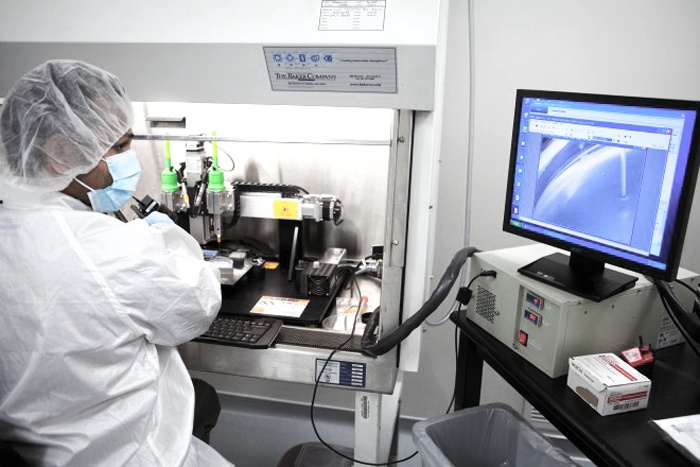In some ways, today may be a day looked back on as a turning point in medical history. Organovo (NASDAQ: ONVO), the first company to market 3D bioprinting technology, has announced the sale of its bioprinted livers, called the exVive3D™ Liver Model. Though too small to be considered an actual organ, the 3D printed exVive3D™ Liver Model has the potential to radically change the field of medicine.
Pioneer of the 3D bioprinting business Organovo has been researching the field since 2007, first developing the NovoGen MMX Bioprinter and then using its bioprinting process to begin 3D printing samples of living human tissue. After successfully creating a viable liver assay, the company announced that sometime in 2014, it would release its first product, a 3D printed liver for drug testing purposes.
Between then and now, Organovo proved that the liver cells could not only live for a substantial amount of time, but also demonstrated liver functions key to drug testing. The liver cells were able to show a toxic response in the presence of known toxins, like Acetaminophen. This proved that the cells could potentially be used to test the toxicity levels of drugs currently being developed by pharmaceutical manufacturers. To get it to market, Organovo first had to find third-party researchers to independently test the viability and effectiveness of their liver cells. Now that pharma companies Janssen Research and Development (JRD) and Roche Pharmaceuticals have verified the product, Organovo has officially launched the 3D printed liver.
As stated, the exVive3D Liver Model is not big enough to be considered an organ, but works in the same way that a real liver might and lives for up to 40 days or longer, making it ideal for testing the toxicity of new medications. Organovo points out that “Since 2007, 16 drugs have been withdrawn from the market due to safety issues. It costs more than $1 billion and takes more than 12 years to bring a drug to market.” Current 2D liver assays can’t provide a realistic environment for testing purposes and die in only a few days. In their retrospective study, however, Roche and Organovo found that only the exVive was able to identify a formerly FDA-approved drug, later removed from the market, as toxic.
Organovo CEO, Keith Murphy, said of the new product, “Pharma companies can use our bioprinted liver tissue to weed out toxic drugs early in drug development rather than after they have failed expensive clinical trials.” One day, such products could, in addition to improving drug safety, bypass the need for animal testing in medicine research as well. For more information about the bioprinting process, watch the video below.
And to hear more on the company’s role in medicine and 3D printing, watch 3DPI’s interview with Keith Murphy at the Inside 3D Printing event in Santa Clara embedded here:



